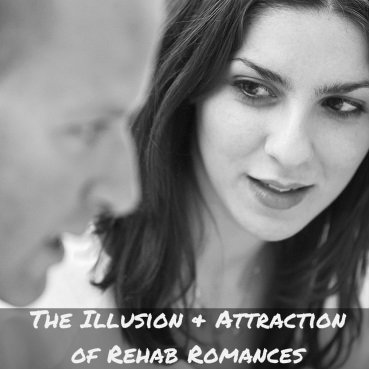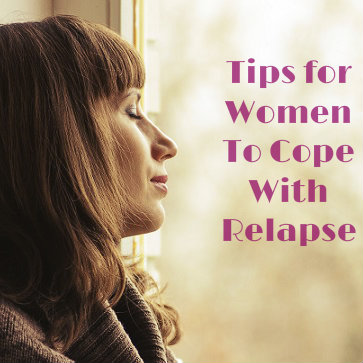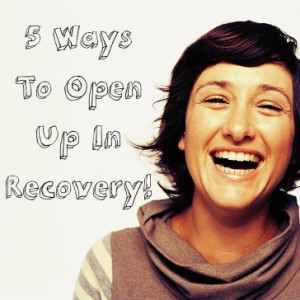12 Sep 2014
The Power Of Education During Recovery
Education is a powerful force for anyone. Learning more about the world improves your quality of life. Earning degrees can help you get a better job, earn more income, and increase your sense of self-worth. For an addict in recovery, these are all important factors. Education can help you learn about your disease, about yourself and your choices, and can occupy your mind and take the place of thoughts about relapsing. Embrace learning and education to strengthen your recovery and your resolve to resist relapse.
What Should I Learn About Addiction?
 Your education begins as you work through your addiction. If you are getting professional help from a therapist, drug counselor, addiction specialist or a team of experts at a rehab facility, you are already learning about your disease. You are also learning about yourself and your motivations. These experts can help you investigate your choices and examine your past to help you learn how the disease of addiction has been at work in your life. This personal education can be a powerful way to help you heal.
Your education begins as you work through your addiction. If you are getting professional help from a therapist, drug counselor, addiction specialist or a team of experts at a rehab facility, you are already learning about your disease. You are also learning about yourself and your motivations. These experts can help you investigate your choices and examine your past to help you learn how the disease of addiction has been at work in your life. This personal education can be a powerful way to help you heal.
As you go through rehab you should also learn about addiction from an external perspective. Read up on how the disease works, how the drugs you have been taking have affected your brain and body, and how other addicts have coped and been successful in recovery. This knowledge is power and will only strengthen your ability to quit and stay sober.
How Can Education Help Me After Rehab?
Education can also help you stay sober after you have completed your rehab program. Rehab is a time for intense self-learning and for devoting yourself to learning about addiction and the role it has played in your life. Once you are sober and are firmly in recovery, education can help you stay that way. One of the most powerful tools to help you avoid relapsing is finding something, or many things, to replace your habit. Some people turn to religion, others devote themselves to exercise, while some develop new hobbies or are focused on work.
You can use any healthful activity to replace your addiction, but one of the best is education. Pick up wherever you left off. If this means going back to high school, enroll in an adult education program or work toward your high school equivalency diploma. If you never made it to college, search for programs that meet your needs. There many choices. Start out at a community college to take a couple of introductory courses, or apply to a university and start working toward a degree. If you have a career in mind, look for programs and schools that will help you achieve your goals.
By focusing attention on education and learning, there’s less room for thoughts about relapsing. Education can’t solve all of your problems, but it can be a powerful way to help you improve yourself, enhance your life, and stay clean.
What If I Can’t Afford To Go To School?
There are plenty of programs and scholarships that can help you get to school if you want to pursue an education. Furthermore, many schools offer night and weekend classes so that you can work while you earn a degree. Also consider that supportive family members might be willing to help you as you set off on a new, healthier stage in your life. Do whatever you can to get yourself an education so that you can get your life back on track.
Learn More About Preventing Substance Abuse Relapse
10 Sep 2014
The Allure Of Rehab Romances
People enter rehab for many reasons: some by way of external forces such as family, friends, legal obligations or employment requirements, while others are personally committed to turning their lives around. Once people walk through the doors, they are in a contained environment that may feel dramatically different than life at home.
Looking around the group therapy room or dining hall, the newly sober person may lock eyes with someone and feel a familiar flutter in the heart and butterflies in the stomach. Serotonin and dopamine that are activated in the brain when a person is using an addictive substance are not all that dissimilar from the chemicals released in human attraction. Add to it the brain chemical oxytocin, known as the “cuddle hormone” and the “tend and befriend hormone,” and there is a set-up for what is colloquially called a “rehab romance.”
Is It Really Love?
The dynamics of rehab romances are infatuation masquerading as love. Of course, there is loneliness and fear that wants to be comforted into submission. In such a setting, there is the common thread of loss, trauma, abuse and addiction that binds people together.
Comments such as “S/he gets me like no one else,” “We can stay sober together,” and “I need a place to stay when I leave here and s/he offered hers,” are commonly heard and used as justification for establishing a relationship that almost universally becomes a recipe for disaster. Why is that so?
The Perils Of Romantic Relationships During Drug Rehab
 Consider that someone in the throes of addiction has a relationship with their substance(s) of choice that superseded all others in their lives while they were using. They put it ahead of their partner, children, career and health. Saying goodbye to it is not a one-and-done event. It is an evolving process. Think of getting involved with someone in an addiction treatment program as a rebound relationship. Are you willing to be the rebound guy or girl and risk playing second fiddle to the addiction should they relapse?
Consider that someone in the throes of addiction has a relationship with their substance(s) of choice that superseded all others in their lives while they were using. They put it ahead of their partner, children, career and health. Saying goodbye to it is not a one-and-done event. It is an evolving process. Think of getting involved with someone in an addiction treatment program as a rebound relationship. Are you willing to be the rebound guy or girl and risk playing second fiddle to the addiction should they relapse?
Many in recovery are also dealing with codependence and have a need to be in a caregiving role. Meeting another struggling soul is the ideal opportunity for those patterns to surface. There are likely as many who are willing to be on the other side of the equation, and surrender to being enabled.
For some, dishonesty went hand in hand with the other addictive behaviors and if someone is in a monogamous relationship outside of rehab, there may be a temptation to lie about interactions behind those doors.
Safer sex practices may not have been a consideration out in the community and may be only an afterthought in an inpatient drug rehab setting. Predatory behavior may also have been part of the addiction cycle for some in treatment and might evidence itself behind the doors of the program they are in.
Short-term gratification is part of an addict’s pattern and seeing another person who seems available in the moment is like being a proverbial “kid in a candy store.” There is often no time to think about the long-term consequences of indulging in the sweets on the shelf.
Peers in treatment may show one face in the program and another once they are discharged. The best advice is: “Don’t take anybody in. Don’t take anybody on. You don’t know what someone is like in their daily lives.”
Worth The Wait
In 12-Step recovery, the newly sober are encouraged to refrain from engaging in budding romantic relationships for at least a year, primarily because they need to focus on their recovery and create a healthy bond with themselves without the distraction of another person. Ask yourself this: “Would you want to be in a relationship with you now? Are you stable enough to sustain positive interactions with someone else?”
Take the time to really get to know, love and respect the woman or man in the mirror before reaching out to bring in a partner, particularly one who, like you, is a newborn, vulnerable infant entering into the world of recovery. Relationships are not 50/50. They are 100/100 with each person bringing 100% of who they are to the table. Wouldn’t you rather be truly prepared to bring the best of who you are to a relationship and welcome in a partner who can do the same? You are likely to find that it is worth the wait.
20 Aug 2014
How To Trust An Addict In Recovery
When you have had to cope with having a loved one struggle with addiction, you learn what it means to lose faith in someone. Addicts tend to abuse the trust of those they love when they’re wrapped up in their illness. Your loved one probably used and lied to you, let you down and maybe even stole from you. Now that he is in recovery, can you ever learn to trust him again? With effort and action on both sides, you can.
What Does It Mean To Trust?
 Trust is something that is at the heart of all healthy relationships. We often think of being trustworthy as being naïve, but that is not always the case. In order to trust anyone you have to be willing to take a leap of faith. It means making yourself vulnerable and opening yourself up to the possibility of being deceived and hurt. Trusting means letting go of fear, and that is never easy, but in order to have a real and loving relationship again, you have to put that fear aside and take the plunge.
Trust is something that is at the heart of all healthy relationships. We often think of being trustworthy as being naïve, but that is not always the case. In order to trust anyone you have to be willing to take a leap of faith. It means making yourself vulnerable and opening yourself up to the possibility of being deceived and hurt. Trusting means letting go of fear, and that is never easy, but in order to have a real and loving relationship again, you have to put that fear aside and take the plunge.
Opening up and letting go of fear take on whole new meanings when your trust is being given to someone who has already proven to be untrustworthy. Every bone in your body may be screaming that you cannot trust him again; all evidence might point to him not having earned your trust, and yet you still have a choice. Moving forward means building up trust once again. Without it you remain stagnant.
What Steps Will Lead To Trust?
Regaining trust when it has been lost means taking action. Most of that action needs to come from the recovering addict. He needs to do the legwork involved in proving that he is trustworthy once again. If he doesn’t yet realize this, you must sit him down for a serious talk about trust, moving forward, and what it will take on his part to earn your trust.
The first thing your recovering addict needs to do is acknowledge the ways in which he has broken your trust in the past. Explain to him how those instances hurt you and make it difficult for you to trust him now. The next step is action-oriented. For all the actions he took to break your trust, he must now do things that prove he is trustworthy. It takes many more instances of trustworthiness to bring back trust than it took deceitful actions to break down that trust, so make sure he is prepared to be patient and to be consistent.
An addict working toward regaining trust needs to always be aware of what he is doing that either earns or further erodes your trust. With every action he takes, or inaction sometimes, he needs to remember to do what he says he will do, be accountable for what he does or what he neglects to do, and always be reliable. He should be there when you need him, with no excuses.
What Can You Do To Trust Your Recovering Addict?
Most of the action needs to come from the addict earning back trust, but you also need to take steps toward opening yourself up again. Remember to be patient and take your time. Trust doesn’t happen overnight when you have endured so much betrayal. Don’t get frustrated with yourself if you continue to question him. Also be sure to be open and honest with your loved one. Trust cannot exist without communication. If you feel he has let you down in some way, don’t sulk. Talk to him about it. When both of you actively work toward rebuilding trust, you also rebuild your relationship—and that is worth the effort.
Check Out These 4 Recommended Tips To Cope When A Loved One Goes To Rehab
11 Aug 2014
Empowering Addicts
Shame and stigma are two of the most common words associated with being an addict, both for those using and those in recovery. As a society we still largely view addiction as a moral failing, while science keeps telling us it is a medical condition. Too many addicts fail to get help because of the shame they feel and the stigma attached to the condition. When we can empower addicts to seek treatment instead of shaming them, we all benefit.
Empowerment Over Shame Of Addiction
 Addiction has long been viewed as shameful for many reasons. Abusing substances does begin with a personal choice. No one is forced to use drugs or to drink. For this reason we have long assumed that addicts continue to have a choice and that they can always choose to stop using and turn their lives around. What many fail to realize is just how powerfully drugs and alcohol impact the brain and body. Substances that are highly addictive change the brain and make it almost impossible to stop using them.
Addiction has long been viewed as shameful for many reasons. Abusing substances does begin with a personal choice. No one is forced to use drugs or to drink. For this reason we have long assumed that addicts continue to have a choice and that they can always choose to stop using and turn their lives around. What many fail to realize is just how powerfully drugs and alcohol impact the brain and body. Substances that are highly addictive change the brain and make it almost impossible to stop using them.
As researchers in addiction uncover these truths, we should start to view addicts differently, but it takes time to change minds. We need to move toward empowering addicts, rather than making them feel ashamed. Empowerment means being educated about the disease of addiction and having the confidence to get much needed treatment. When we can empower addicts, we can better help them.
Taking Action To Empower Addicts
The good news is that ideas about and attitudes toward addiction are changing. It takes time to make a societal shift, but slowly and surely it seems to be happening. There are people who are taking specific actions to lift the stigma attached to addiction and to empower addicts as a whole and as individuals.
For instance, a new trend is taking place that involves gathering recovering addicts in large groups to celebrate recovery and sobriety. In the UK, the Brighton Recovery Walk is in its fourth year, while the nationwide UK Recovery Walk is on year six. These events include a large gathering of recovering addicts, out to celebrate their sobriety without shame. These recovery walks show the faces of addiction and battle the stigma of this disease with a positive message of hope and empowerment. Similar events have begun to pop up in the U.S. as well.
Other empowering actions work with individual addicts. For instance, Stanford University created a program to educate women in recovery in the humanities. The lessons these women learn help to empower and strengthen their recovery by teaching them about facing obstacles, giving them new perspectives and expanding their horizons. Most of all the courses show them that they are worthy of learning and of working with Stanford professors.
Empowering Individuals In Your Life
If you have an addict in your life, consider how you can empower her. Educate her about her disease and options for treatment. Help her by supporting her when she needs it and by being there during difficult times. Encourage her to attend events like the Recovery Walks and to seek out other programs that are available to help women like her.
The more you talk about addiction and refuse to treat it like a shameful series of choices that someone has made, the more we can empower all addicts. With empowerment comes the confidence to reach out and get help. Today we have a number of ways to treat addicts that are effective and no one should feel too ashamed to ask for that help.
Check Out Additional Recovery Inspiration Posts!
07 Aug 2014
The Place For Alternative Medicine In Addiction
Alternative medicine is gaining popularity as people begin to turn to natural practices in medicine, many of which have been used for centuries in cultures around the world. Some prefer to use alternative medicine, while others turn to practitioners when modern medicine has failed. Today, alternative medicine touches all areas of healing, including addiction. Many rehab facilities are beginning to incorporate some of these techniques.
What Is Alternative Medicine?
Among the different terms referring to alternative medicine, a few stand out. Alternative refers to any practice outside mainstream, modern, Western medicine. Some prefer the term holistic medicine, which means treating the whole person instead of treating a disease or a set of symptoms alone. Holistic approaches use many alternative practices. Complementary medicine is another term commonly used. These are alternative medicine practices that are used in conjunction with traditional treatments.
What Kinds Of Alternative Therapies Are Used For Addiction Treatment?
 Alternative medicine encompasses a variety of practices from ancient Chinese herbal remedies to modern biofeedback equipment. A few of these have found a place in addiction rehab and have helped some people in their battle to give up drugs or alcohol. Acupuncture, which comes from traditional Chinese medicine, is a practice that involves inserting thin needles into the skin. Acupuncture is believed by some to help reduce cravings and the urge to relapse.
Alternative medicine encompasses a variety of practices from ancient Chinese herbal remedies to modern biofeedback equipment. A few of these have found a place in addiction rehab and have helped some people in their battle to give up drugs or alcohol. Acupuncture, which comes from traditional Chinese medicine, is a practice that involves inserting thin needles into the skin. Acupuncture is believed by some to help reduce cravings and the urge to relapse.
Meditation and yoga are also often used as components of addiction treatment. Both come from ancient India and are great for relaxation and stress relief. Yoga is a type of exercise that involves using controlled movements. Research has proven that yoga helps people manage stress. When you can reduce stress in your life you can better resist the urge to abuse substances. Meditation has a similar effect; it helps focus the mind and control will. Turning to meditation when craving occurs can be a very powerful and effective tool.
Other types of alternative medicine may be used during addiction treatment, although research as to their effectiveness is limited. Some of these include art therapy, equine therapy (working with horses), massage therapy, herbal supplements, prayer or spiritual enrichment and hypnosis. Some rehab facilities may also use biofeedback and neurofeedback. These are techniques that use equipment to measure body and brain processes so that you can learn to control them. In neurofeedback, brain waves are retrained to a normal pattern to help reduce cravings.
Should I Use Alternative Medicine To Help Treat Addiction?
Whether alternative medicine practices can help you overcome addiction is uncertain. There is evidence for some of the more common practices like yoga and meditation, but others have received limited attention from researchers. For the most part, these practices are safe and it can’t hurt to try them. If they work for you and help you to stay sober and resist cravings, use them.
Only choose to participate in alternative medical care from experienced practitioners. If certain techniques are of interest, speak to your therapist, clinical team or doctor to get resources for practitioners who have worked with addicts. Most techniques are safe, but in the wrong hands there could be consequences or side effects. Also remember that alternative medicine should be used only in addition to primary addiction treatment. It is also necessary to keep up with therapy or support group sessions. The combination of traditional and alternative medicine, however, may prove to be just the right plan that works for you.
Read Our Other Posts On Addiction Recovery!
06 Aug 2014
Tips To Cope With Relapse As A Woman
Addiction is a problem that affects both men and women. It doesn’t discriminate. But how we cope with addiction, how we heal from it and how we relapse does depend on our gender. As a woman your motivations for using drugs or alcohol again, after a period of sobriety, are likely different from a man’s. The best way to cope and get back on your feet will also differ for you as a woman. If you do relapse, realize that there are effective ways to help you cope and get sober again.
Women And Relapse
 Researchers have found that there are differences between the genders with respect to addiction, treatment and relapse. One study looked at thousands of alcoholics, both men and women, receiving treatment. Each participant attended an assigned style of treatment, but all were allowed to go to support group meetings in addition to their official programs. All then reported on how they fared in terms of sobriety, relapse and support.
Researchers have found that there are differences between the genders with respect to addiction, treatment and relapse. One study looked at thousands of alcoholics, both men and women, receiving treatment. Each participant attended an assigned style of treatment, but all were allowed to go to support group meetings in addition to their official programs. All then reported on how they fared in terms of sobriety, relapse and support.
The researchers found that men who took advantage of support groups, such as Alcoholics Anonymous, did so to make non-drinking friends and to build up a support network to help them avoid the temptations of being around alcohol. For men, being in social situations with alcohol was the biggest trigger to relapse. The study found that this wasn’t the case for women. For us, the biggest trigger is emotional. Women used support groups to cope with their emotions, like depression or anxiety, which tempted them to relapse and start drinking again.
Women And Emotions
Knowing that as a woman your primary triggers for relapse are your feelings and state of mind, you have a powerful piece of information. Knowing your triggers is the key to avoiding them and avoid having a relapse. With emotions backing your relapse triggers, it is more important than ever to pay attention to and care for your emotional life. Here’s what you can do:
Tips To Cope With Relapse And Emotions
- Stay in counseling – Therapy or counseling sessions help you recognize, regulate, and control your emotions. Many people who have gone through rehab simply stop attending sessions thinking they no longer need the help. You may not need your therapist as often as you once did, but you still need some check-ups. Keep a regular, even if infrequent, schedule of counseling sessions for emotional maintenance.
- Practice relaxation techniques – When your emotions start to build and you feel angry, lonely or depressed, you may want to turn back to your habit. Instead, turn to meditation, yoga, and other practices that help you relax and re-focus. These can be very powerful ways to control your urges to relapse.
- Take care of your body – Too often we are too busy to take good care of ourselves, but our emotional states are connected to our physical states. Eat well, get plenty of sleep every night, and get regular exercise and you will feel better every day.
- Get involved – Being intellectually and socially engaged with the world around you can help you to better cope with your emotions. Having a support network is important in helping you resist relapse urges, but so is engaging your mind. Try new activities and develop new hobbies and skills.
As a woman you face unique problems associated with your addiction and your potential to relapse. Unlike men, we are driven to abuse substances by our emotions. We cope with our feelings by using drugs or by drinking. When you can learn to recognize your destructive emotions and cope with them, you can avoid relapsing and stay sober.
Read Our Other Informative Addiction Blogs To Help Women!
23 Jul 2014
How To Stage An Intervention
Helping someone you love admit to having an addiction and agree to get help is a big challenge. It can be tempting to lecture, nag, and even beg your loved one to get help, but sometimes what it really takes is a focused confrontation. When it seems like your loved one will never let go of denial or agree to get help, consider a group intervention. Before you throw one together, make sure you understand what it means to host an intervention, learn how to optimize the chance of success and consider what to do if it fails.
What Is An Intervention?
 An intervention is a planned meeting during which you and other loved ones confront someone who is struggling with addiction. While interventions have traditionally involved asking the addict to sit and be quiet while others talk, more recently they have become more like conversations. The more modern approach allows the addict to bring up his concerns and to ask questions in a safe environment. The idea is to not blame or shame the addict, but to make sure he understands how many people care about him, are worried about him and want to help.
An intervention is a planned meeting during which you and other loved ones confront someone who is struggling with addiction. While interventions have traditionally involved asking the addict to sit and be quiet while others talk, more recently they have become more like conversations. The more modern approach allows the addict to bring up his concerns and to ask questions in a safe environment. The idea is to not blame or shame the addict, but to make sure he understands how many people care about him, are worried about him and want to help.
An intervention typically includes a planned approach, specific examples for the addict regarding his behaviors and their consequences, and a statement from all of the participants regarding what they will do if he continues to refuse help. Participants may include family members, friends, coworkers and sometimes an addiction professional.
What Makes An Intervention Successful?
You can never guarantee that your intervention will be successful (success is measured by the willingness of the addict to accept and get help), but you can ensure the best odds of success by carefully preparing for the event. An intervention should start with thorough planning that includes participants, deciding what each person will say and even having an outline for how the event will proceed. Practicing ahead of time is also a good idea, as is asking each person to write down what he or she wants to say.
A good intervention should also include specific consequences. For instance, you might tell the addict that you are cutting off financial support if he refuses to get help. Each person participating should be ready with a consequence to help motivate the addict to accept treatment. It is also important to select the timing of the intervention carefully. It would be best if your loved one is sober, so choose a time and day that this is most likely to be the case. And finally, be ready with treatment options.
When To Rely On A Professional Interventionist
There are addiction professionals who specialize in planning and hosting interventions and if you feel that you cannot handle holding one on your own, consider consulting with one of these specialists. There are other good reasons to turn to a seasoned interventionist professional: if your loved one has a serious mental illness, has a history of violence, cannot be counted on to be sober for the event or if he shows signs of suicidal behaviors or attitudes. In these cases, confronting your loved one may be beyond your abilities.
When An Intervention Plan Doesn’t Work
As you prepare for the intervention, be ready for the possibility that your loved one will continue to deny his problem and refuse to get treatment. Make sure that everyone involved is prepared to follow through with the consequences that you are setting for him. If it means cutting this person out of your life because of the harm he is causing you, be ready to do it. Remember that you cannot control his choices or his behaviors. You can offer him all the help in the world, but only he can accept it.
If You Need More Help With An Intervention Plan, Call Us Now! Help Is Available 24/7
15 Jul 2014
5 Ways To Open Up In Recovery
It’s natural to feel resistant about going to rehab for your addiction. Seeking treatment means a whole world of new possibilities, many of which are frightening. You might fail the first time around. You might succeed and get sober only to realize you have no idea how to live without drugs or alcohol. These fears and resistance to going into rehab and therapy can make you want to clam up. Your best chance at successful recovery comes when you give yourself fully to the process, and this means opening up, sharing your weaknesses, and likely feeling vulnerable. Here’s how to get past your fears and misgivings and open up to your therapist and fellow recovering addicts.
5 Ways To Open Up In Addiction Recovery
 1. Commit To The Program
1. Commit To The Program
Despite all your reservations, fears and uncertainties, give yourself the best chance of success by committing to your treatment program from the beginning. If you go into rehab with a positive attitude and the willingness to do what it takes to get well, you will find it easier to open up to others as a part of your treatment.
2. Listen First
If you are feeling hesitant about opening up in therapy or group sessions, give yourself a little time to get comfortable. This is a completely new experience and you are out of your element. As you settle in, listen to those around you. Listen to your fellow patients opening up in group therapy. Absorb what they have to say and notice how the others react. No one is ridiculed for sharing personal stories and feelings, right? Listening to others will help you to realize that you are in a safe place and will help you feel comfortable about talking when it’s your turn.
3. Start A Journal
Opening up to others is a big step. Start with a baby step if you’re finding it difficult to do. Open up to yourself by writing down what you want to share with your therapist or your peers. As you begin to write down what you feel and what you have experienced, the task of saying these things aloud, and to others, will become easier to do.
4. Let Your Therapist Be Your Guide
You may not be asked to open up in a group session on the first day, but your counselor or therapist will want to hear from you in one-on-one talks right away. This may be easier than talking to a small group, but it’s still tough. Remember that your therapist is there to guide you through your treatment. Let her guide your sessions and what you talk about. The pressure is not all on you to decide what to say. Once you get going you may just find that you can’t stop talking.
5. Know When Not To Open Up
Your rehab facility, and especially your time with your therapist, should feel safe. While it’s natural to feel reluctant to speak up at first, you should be able to relax into the process of talking about yourself. If you just can’t do it, or your gut is telling you that something isn’t right, you might not be the problem. Not all programs or therapists are created equal. If you feel uncomfortable where you are, get out and find a program or a therapist that does feel right.
Opening up is never easy. When you have so much bottled-up shame and guilt because of your addiction, getting your feelings out in the open is both a challenge and a catharsis. Take steps toward opening up and you will reap the rewards of a true breakthrough.
See Our Other Posts With Helpful Recovery Tips – Recovery Is Possible!


